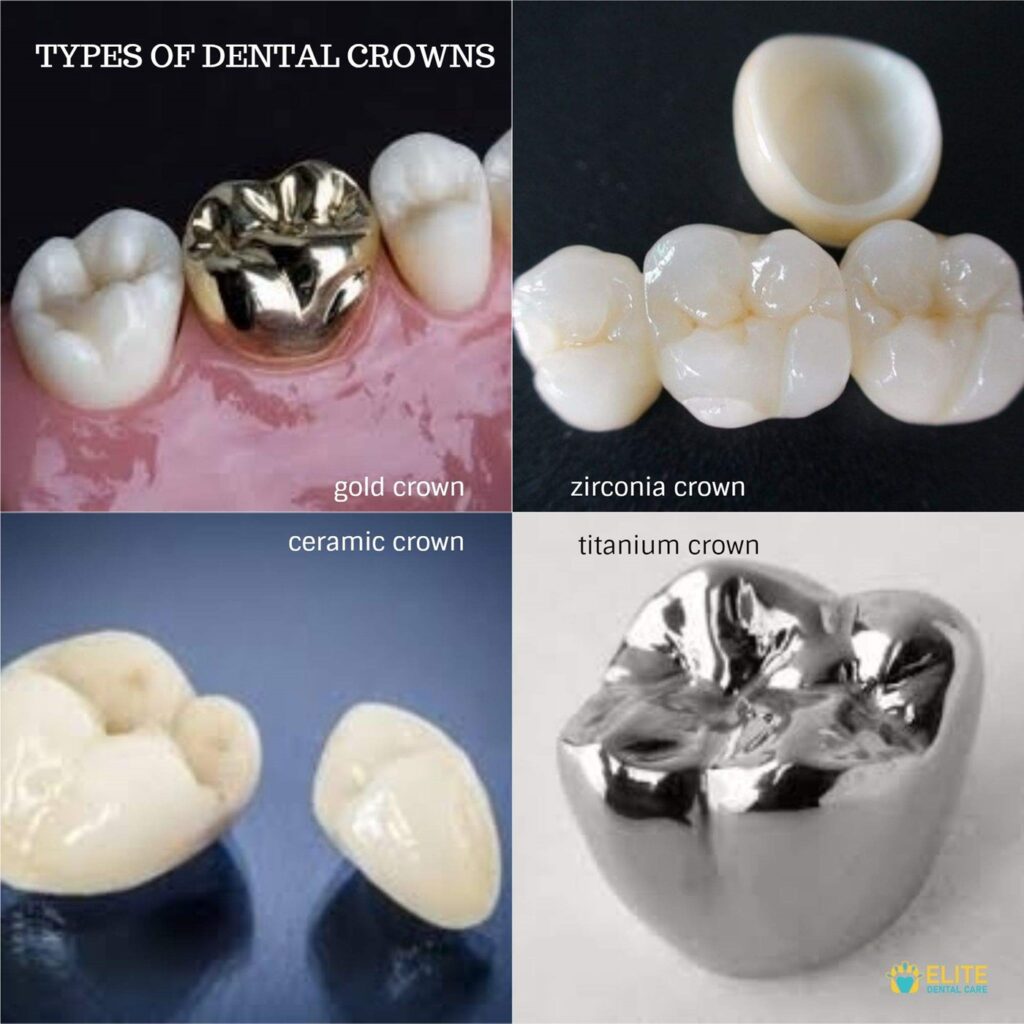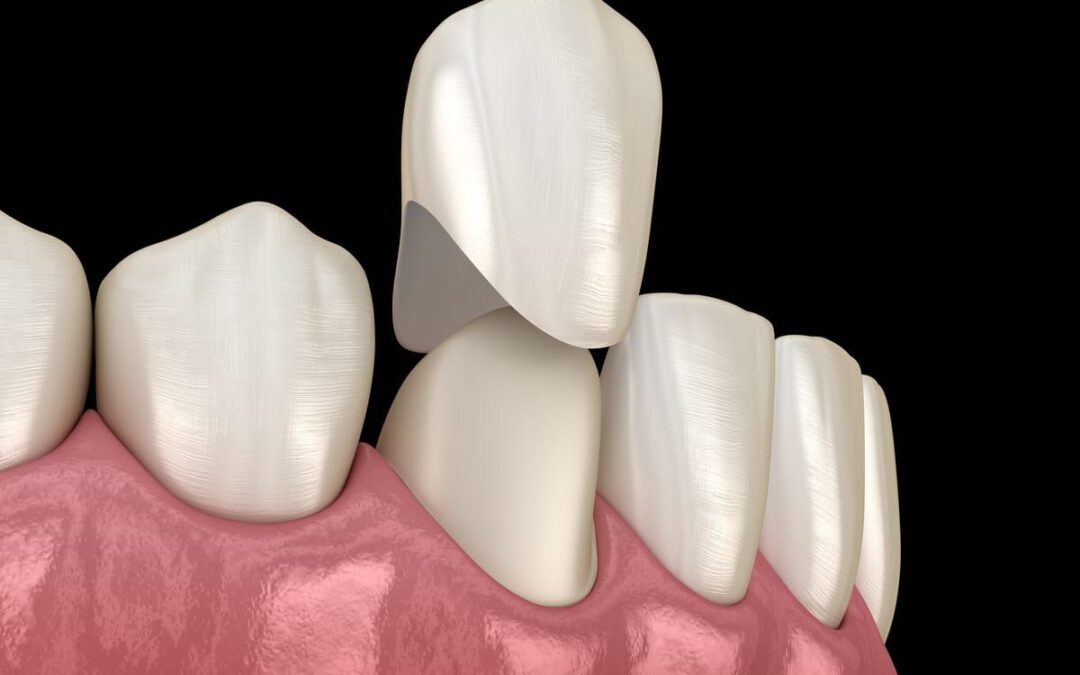When it comes to dental health, few procedures are as common—or as misunderstood—as getting a dental crown. Whether you’re dealing with a cracked tooth, severe decay, or simply seeking to enhance your smile, dental crowns offer a durable and aesthetically pleasing solution. However, one crucial aspect often looms large in patients’ minds: dental crown cost.
Understanding the cost of a dental crown can feel overwhelming, with various factors influencing the final price. From the materials used and the complexity of the procedure to geographical location and insurance coverage, each element plays a significant role in determining how much you’ll pay. In this blog post, we aim to demystify the cost of dental crowns, providing you with a comprehensive guide on what to expect.
Factors Influencing the Dental Crown Cost
Dental crown cost can vary widely, influenced by several key factors. Understanding these factors can help you make informed decisions and better manage your dental care budget. Here are the primary elements that impact the cost of dental crowns:
1. Materials Used
- Types of Materials: Dental crowns can be made from a variety of materials, each with its own cost implications.
- Zirconium Crowns: Known for their natural appearance, Zirconium crowns are often more expensive due to their aesthetic appeal and biocompatibility.
- Porcelain-Fused-to-Metal (PFM) Crowns: These crowns combine the strength of metal with the aesthetics of porcelain.
- Metal Crowns: Typically made from gold or other metal alloys, these crowns are durable and often less costly than porcelain or ceramic options.
- Composite Resin Crowns: These are generally the least expensive option but may not last as long as other materials.
- Lithium Disilicate Crowns: Lithium disilicate dental crowns are highly aesthetic and durable ceramic restorations known for their excellent translucency and strength.
2. Location and Dental Practice
- Geographic Variation: Dental care costs can vary significantly depending on where you live. Urban areas with higher living costs tend to have higher dental fees compared to rural areas.
- Dental Practice Reputation and Technology: High-end dental practices with advanced technology and experienced specialists may charge more for their services.
3. Complexity of the Procedure
- Individual Case Complexity: The condition of your tooth and the extent of damage or decay can affect the cost. More complex cases that require additional procedures, such as root canals or tooth build-ups, will increase the overall expense.
- Additional Procedures: Sometimes, preparatory work like gum treatment or tooth reshaping is needed before placing a crown, adding to the cost.
4. Dentist’s Expertise
- Experience and Skill: Dentists with specialized training and extensive experience in restorative dentistry may charge higher fees for their services.
- Laboratory Costs: The cost of fabricating the crown in a dental laboratory can vary based on the lab’s quality and location. High-end labs that use advanced techniques and materials may charge more, reflecting in the final cost of the crown.
Average Dental Crown Cost
Here, we’ll provide an overview of the average costs associated with different types of dental crowns and break down the components that contribute to the overall price.

- Zirconium Crowns: Zirconium crowns, known for their natural appearance and compatibility with gum tissue, typically range from Rs.8000 to Rs.20,000 per tooth.
- Metal Crowns: Metal crowns, made from gold or metal alloys, are durable and can cost anywhere from Rs.4000 to Rs.8,000 per tooth.
- Porcelain-Fused-to-Metal (PFM) Crowns: These crowns combine the strength of metal with the aesthetics of porcelain, costing between Rs.8000 to Rs.15,000 per tooth.
- Composite Resin Crowns: Composite resin crowns are generally the least expensive option, ranging from Rs.6000 to Rs.15,000 per tooth.
- Lithium Disilicate Crowns: Lithium disilicate dental crowns are highly aesthetic and durable ceramic restorations known for their excellent translucency and strength. Rs.12,000 to Rs.25,000 per tooth.
Long-Term Value of Dental Crowns
When considering the dental crown cost, it’s important to also consider their long-term value. Dental crowns can be a significant investment in your oral health, offering durability, functionality, and aesthetic benefits that can make them worth the initial expense. Here’s an overview of the long-term value of dental crowns:
1. Durability and Lifespan
- Longevity: Dental crowns are designed to last many years, often between 10 to 15 years or longer, depending on the material used and how well they are cared for. Some high-quality crowns can last 20 years or more.
- Material Strength: Different materials have varying durability. Metal crowns, such as gold or metal alloys, are exceptionally durable and resistant to wear. Porcelain and ceramic crowns, while slightly less durable than metal, offer a strong and long-lasting solution with the added benefit of a natural appearance.
2. Cost vs. Quality
- Initial Investment: Higher-quality crowns made from durable materials may have a higher upfront cost, but they often provide better long-term value by lasting longer and requiring fewer replacements or repairs.
- Avoiding Complications: Investing in a well-made crown from a reputable dentist can help avoid complications such as crown failure, poor fit, or discomfort, which can lead to additional costs for adjustments or replacements.
3. Functional Benefits
- Restoring Function: Crowns restore the functionality of damaged or decayed teeth, allowing you to eat, speak, and chew properly. This can improve your overall quality of life and prevent further dental issues that could arise from compromised teeth.
- Protection: Crowns protect weakened teeth from further damage or decay, preserving the underlying tooth structure and preventing the need for more extensive and costly procedures like extractions or implants.
4. Maintenance and Aftercare
- Proper Care: With proper oral hygiene and regular dental check-ups, you can extend the lifespan of your dental crowns. This includes brushing twice a day, flossing daily, and visiting your dentist regularly for cleanings and examinations.
- Avoiding Damage: Taking precautions such as avoiding hard or sticky foods, not using your teeth as tools, and wearing a mouthguard if you grind your teeth can help prevent damage to your crowns and prolong their lifespan.
5. Preventive Benefits
- Preventing Further Issues: By addressing dental problems early with crowns, you can prevent more serious issues down the line. This proactive approach can save you money and discomfort in the long run.
- Preserving Oral Health: Maintaining good oral health with the help of dental crowns can have positive effects on your overall health, as poor oral health is linked to various systemic conditions such as heart disease and diabetes.
What to Expect During the Dental Crown Procedure
Understanding the steps involved in getting a dental crown can help alleviate any anxiety and ensure you are well-prepared for the process. Here is a detailed overview of what you can expect during the dental crown procedure:
1. Initial Consultation
- Evaluation and Diagnosis: During the first visit, your dentist will conduct a thorough examination of your tooth, which may include X-rays to assess the extent of damage or decay and to check the roots of the tooth and surrounding bone.
- Treatment Plan: Based on the evaluation, your dentist will discuss the treatment plan, including the type of crown best suited for your needs, the materials available, the procedure timeline, and the costs involved.
2. Tooth Preparation
- Anesthesia: The procedure typically begins with the administration of local anesthesia to numb the tooth and surrounding area, ensuring a pain-free experience.
- Tooth Reshaping: The dentist will reshape the tooth receiving the crown. This involves removing a portion of the tooth structure to make room for the crown. The amount of tooth reduction depends on the type of crown being used.
- Decay Removal: If there is any decay present, it will be removed during this step. If a significant portion of the tooth is missing due to decay or damage, the dentist may need to build up the tooth with filling material to support the crown.
3. Impressions
- Taking Impressions: After the tooth is prepared, your dentist will take an impression (mold) of the reshaped tooth and the surrounding teeth. This can be done using a putty-like material or digital scanning technology.
- Bite Registration: An impression of your bite will also be taken to ensure the crown will not interfere with your chewing and biting functions.
4. Temporary Crown
- Fitting a Temporary Crown: While your permanent crown is being fabricated in a dental laboratory, a temporary crown will be placed over the prepared tooth. This temporary crown protects the tooth and maintains its functionality and appearance.
- Temporary Crown Care: You will receive instructions on how to care for the temporary crown, such as avoiding sticky or hard foods and being gentle when brushing and flossing around the crowned tooth.
5. Permanent Crown Placement
- Removing the Temporary Crown: During your next visit, the dentist will remove the temporary crown and clean the tooth.
- Fitting the Permanent Crown: The permanent crown will be checked for fit, color, and bite alignment. Adjustments will be made as necessary to ensure a proper fit and comfortable bite.
- Cementing the Crown: Once the fit is perfect, the dentist will cement the crown onto the prepared tooth using a strong dental adhesive. Excess cement will be removed, and the bite will be checked again to ensure comfort and functionality.
6. Aftercare and Maintenance
- Oral Hygiene: Maintain good oral hygiene by brushing twice a day and flossing daily to keep the crowned tooth and surrounding gums healthy. Special attention should be given to cleaning around the crown to prevent gum disease and decay.
- Avoiding Damage: Avoid chewing on hard objects such as ice, pens, or hard candies to prevent damage to the crown. If you grind your teeth at night, wearing a nightguard can protect the crown and other teeth from excessive wear.
- Diet Considerations: Initially, you might want to avoid very hard or sticky foods that could dislodge or damage the crown. Over time, you can generally return to a normal diet.
Conclusion
The long-term value of dental crowns lies not only in their durability and functional benefits but also in their potential to enhance your smile and overall oral health. With proper care and maintenance, a well-made dental crown can last many years, providing both aesthetic and practical benefits that outweigh the initial dental crown cost. As you consider the need for a dental crown, remember that your dentist is a valuable resource. They can provide personalized advice tailored to your specific situation, ensuring you receive the best possible care at a cost that fits your budget. By being proactive and informed, you can make the most of your dental health investment and enjoy the lasting benefits of a healthy, beautiful smile.

